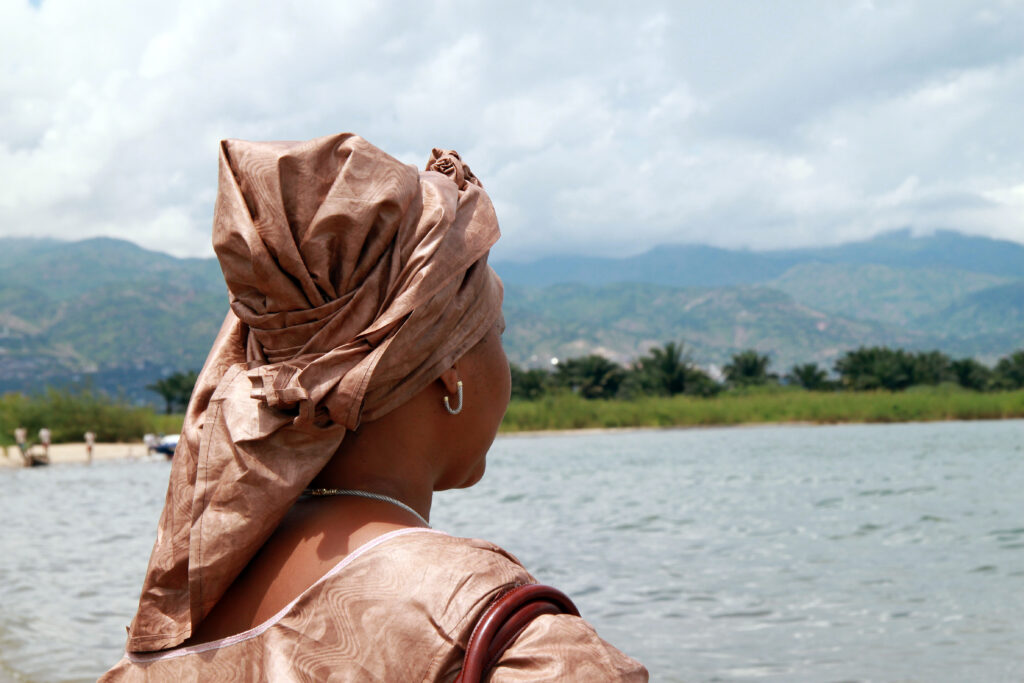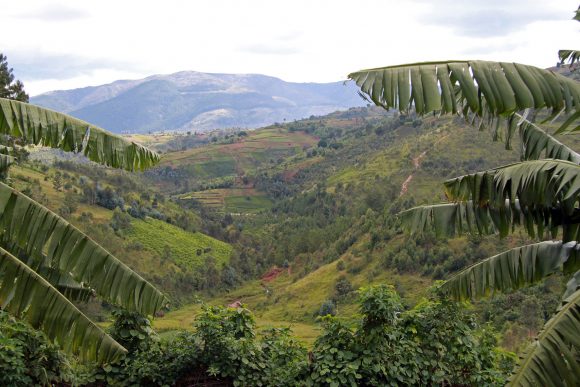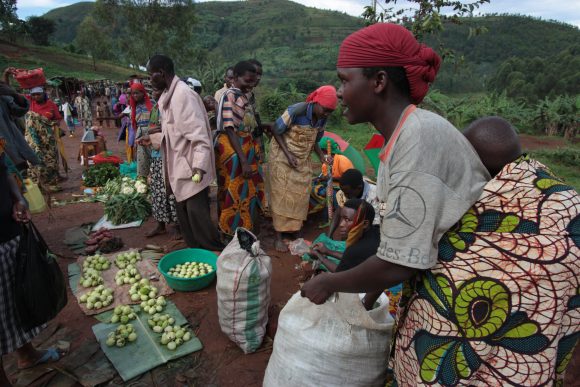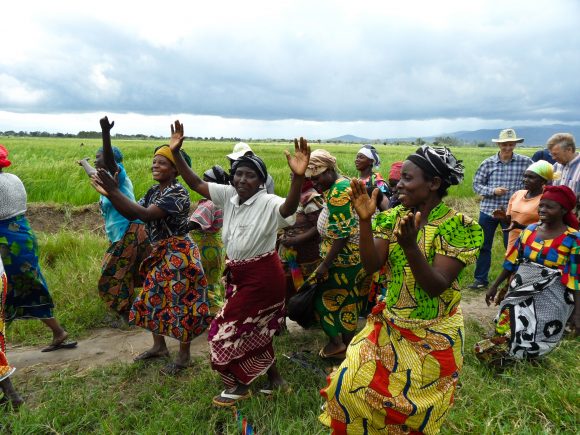La confianza para hablar claro: Ayudar a una joven dirigente a desarrollar sus dotes de liderazgo

Elise* es una joven propietaria de un bar y un restaurante en su pequeño pueblo de las colinas de Burundi.
Disfruta de su independencia y utiliza su espíritu emprendedor para ayudar a otras mujeres y niñas a cubrir sus necesidades básicas y alcanzar la autonomía económica.
A Elise siempre le ha interesado la política, y se afilió a uno de los principales partidos de la oposición burundesa -un partido innovador conocido por colocar a mujeres en buenas posiciones en la lista de las elecciones comunales de 2015- cuando era joven.
En un taller para mujeres y jóvenes miembros de su partido organizado por la Programa de Formación de Líderes de Burundi (BLTP)Elise, socia de NIMD en Burundi, da un paso al frente y habla claro:
"No podemos irnos de aquí sin agradecer a BLTP las formaciones que organiza para los partidos políticos. La formación que recibí reforzó mi liderazgo personal. Y lo que es más importante, desde que participo en las formaciones de BLTP, mi miedo ha desaparecido."
*Los nombres han sido modificados por razones de privacidad

El taller en el que Elise decidió hablar fue uno de los muchos organizados en Burundi por NIMD y su socio BLTP. Juntas, a través de estos talleres, las dos organizaciones trabajan para crear las condiciones necesarias para el diálogo entre los distintos partidos políticos.
De acuerdo con el Ministerio del Interior, los talleres se organizan de forma integradora, con la participación de los principales partidos de todo el espectro político, tanto en el gobierno como en la oposición.
Dotan a los políticos y líderes civiles a nivel local y regional de las capacidades necesarias para hacer avanzar a sus partidos y entablar conversaciones entre ellos.
Además, el NIMD y el BLTP invierten en el desarrollo organizativo a largo plazo de los partidos políticos, ayudándoles a afrontar los retos del futuro y a desempeñar su papel en una democracia multipartidista.
Esta labor es fundamental para ayudar a los partidos a desenvolverse en el contexto político e histórico de su país.
El contexto burundés
Burundi es un país sin salida al mar, pequeño pero densamente poblado, situado en el corazón de África. Es uno de los países menos desarrollados del mundo y ocupa el puesto 184 de 188 en el Índice de Desarrollo Humano de 2015.
El país ha sido testigo de décadas de violentos conflictos civiles entre grupos étnicos desde su independencia en 1962. Cuando las últimas partes beligerantes importantes firmaron el Acuerdo de Arusha de Paz y Reconciliación para Burundi de 2000, con acuerdos de alto el fuego en 2003 y 2006, se puso fin al episodio más reciente de violencia a gran escala, la guerra civil de 1993-2005.

Bajo la supervisión de varias misiones posteriores de la ONU, las esperanzas de una transición pacífica de Burundi hacia una democracia multipartidista eran muchas.
En 2005, el actual Presidente Pierre Nkurunziza fue elegido democráticamente para convertirse en el primer presidente postransicional.
Sin embargo, en torno a las elecciones de 2010, las relaciones entre los partidos políticos se endurecieron y muchos de los principales partidos de la oposición boicotearon las elecciones por temor a que fueran injustas.
La impugnada decisión del presidente Nkurunziza de presentarse a un tercer mandato, considerada inconstitucional por algunos, desencadenó una grave crisis política en 2015. Siguieron violentas protestas, un intento de golpe de Estado y una crisis de refugiados.
El panorama político se polarizó y los partidos se debilitaron. La fuerte desconfianza política y la falta de diálogo integrador entre los distintos grupos siguen planteando un reto importante.
En un contexto de polarización, y con unos partidos mal equipados para hacer frente a los retos del país, la promesa de un diálogo constructivo entre las partes para ayudar a avanzar a uno de los países más pobres del mundo amenazaba con marchitarse.

Fue en este clima político cuando Elise se dio cuenta de que la política en Burundi afecta a todo y a todos.
Notó cómo, a raíz de su afiliación a su partido, cada vez más gente empezaba a evitar su tienda, incluso los que eran clientes habituales hace sólo unos años.
Dijo: "Me encanta la política porque creo en la ideología de la justicia y en la solidaridad de mi partido. Pero la polarización tiene efectos perjudiciales para mi negocio. A veces mis clientes ya no comen aquí, o tienen miedo de visitar mi bar por temor a que se les asocie con mi partido".
Esto hizo que Elise se diera cuenta de que quería implicarse más. Así que se alegró cuando le surgió la oportunidad de convertirse en dirigente provincial de su partido.

Reforzar las capacidades y fomentar el diálogo
En su nuevo cargo de líder provincial del partido, Elise habló de cómo la formación le había ayudado a liderar su partido y a superar el miedo a hablar.
Elise se enorgullece de afirmar que esta formación ha reforzado su capacidad de liderazgo personal. También explicó la importancia de estas reuniones para su partido en su conjunto.
Cuando se convirtió en líder provincial, a los partidos de la oposición les resultaba muy difícil organizar reuniones y funcionar con normalidad. Debido al alto grado de desconfianza entre el partido gobernante y los partidos de la oposición, algunos líderes de la oposición se han visto obligados a huir del país o a evitar los espacios públicos. Otros han sido encarcelados.
La formación que el NIMD y el BLTP organizan para los principales partidos burundeses les ayuda a afrontar estos retos, así como a reforzar las capacidades democráticas y de liderazgo de sus miembros.
Elise comentó la importancia del contacto físico para la fiesta:
"No sabía que podría haber una oportunidad de ver a los miembros de mi partido reunidos físicamente. Ni siquiera los dirigentes provinciales nos conocíamos y nos comunicábamos por teléfono, y ahora la formación de organizada por BLTP nos brinda esta oportunidad."
La formación de que disfrutan las partes individualmente también les ayuda a encontrarse en el diálogo.
Un partido bien preparado que tiene sus procesos internos en orden es, después de todo, más capaz de entablar debates políticos y diálogo con otros partidos.
Este tipo de preparación aumenta la confianza en las propias posiciones y fomenta la apertura a reconocer la importancia de trabajar juntos para ayudar a resolver los retos a los que se enfrenta la población de Burundi.
 La formación de Elise le ayudó a tener confianza para asistir a reuniones de diálogo con otros partidos, incluido el gobernante, y a entusiasmar y convencer a miembros de su propio partido para que se unieran a ella.
La formación de Elise le ayudó a tener confianza para asistir a reuniones de diálogo con otros partidos, incluido el gobernante, y a entusiasmar y convencer a miembros de su propio partido para que se unieran a ella.
Dadas las difíciles circunstancias que rodean la política en Burundi, no siempre es un camino fácil.
Al reunir a distintas partes, los talleres son siempre inclusivos e imparciales. Sobre todo, se celebran en un ambiente de confianza, en el que los miembros de los partidos pueden hablar libremente.

Como comentó Elise, con una sensación de alivio y esperanza:
"Reunirnos con miembros de otros partidos es muy beneficioso para nosotros. Esto disipa nuestro miedo cuando vemos que podemos hablar, expresar nuestra opinión y convivir con participantes de otros partidos."
Al fin y al cabo, el diálogo se desarrolla con el contacto físico. En estas reuniones, las partes debaten los retos más importantes para Burundi y cómo salir del actual estancamiento político.
NIMD sigue apoyando a los partidos políticos de Burundi -basándose en sus valores de imparcialidad, inclusión y compromiso a largo plazo- para que entablen un diálogo constructivo y encuentren una salida a la crisis actual.
Al mismo tiempo, capacita a políticos jóvenes y veteranos como Elise para ayudarles a mejorar sus dotes de liderazgo y su comprensión y aplicación de los valores democráticos, así como capacidades más técnicas como la negociación y la comunicación política no violenta.
Confiamos en que la combinación de partidos bien organizados, líderes políticos capacitados como Elise y un esfuerzo continuo por crear un entorno propicio al diálogo contribuya a una solución pacífica para los numerosos retos de Burundi.